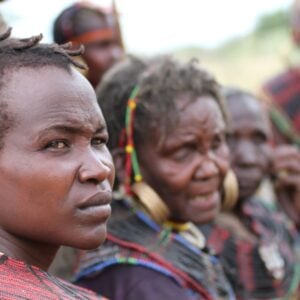Rwanda is making significant strides toward becoming a hub for artificial intelligence (AI) in Africa, securing a $17.5 million investment from the Bill & Melinda Gates Foundation to establish the Rwanda AI Scaling Hub. This initiative aims to drive AI innovation across sectors such as health, agriculture, and education, with a particular focus on addressing challenges in underserved and rural communities. Announced by Yves Iradukunda, Minister of State in the Ministry of ICT and Innovation, the hub will support the development of startups and AI applications designed to deliver practical solutions for Africa’s unique contexts.
The Rwanda AI Scaling Hub is part of a broader continental effort, introduced at the Global AI Summit on Africa in April 2025, where four regional hubs were announced, with Rwanda’s Centre for the Fourth Industrial Revolution hosting the first. The $17.5 million investment more than doubles an earlier $7.5 million commitment, signaling the Gates Foundation’s confidence in Rwanda’s vision. The hub is designed to serve as a central platform for the responsible and ethical development of AI technologies aimed at tackling Africa’s pressing challenges.
Key projects under the hub include AI-powered telemedicine, which will enable rural populations to access doctors and receive digital prescriptions in Kinyarwanda through SMS, chat, and voice platforms. An AI triage tool will also guide patients to appropriate care. The Rwanda Medical Supply agency will leverage AI for demand forecasting and procurement intelligence, helping prevent drug shortages and optimize healthcare logistics in real time.
In maternal health, AI-enabled ultrasound imaging will allow nurses and midwives in remote areas to detect pregnancy complications quickly, improving outcomes for mothers and babies. In agriculture, an AI-driven advisory system will provide smallholder farmers, particularly women and youth, with real-time guidance on crop health, soil nutrition, and pest control via WhatsApp, SMS, and voice channels, promoting climate-smart farming practices.
The hub will also support education through AI-powered learning assessments in primary schools. Teachers can upload students’ answer sheets for instant analysis, allowing personalized feedback and data-driven instruction in overcrowded classrooms. Beyond these applications, the hub will nurture local AI innovation by providing startups with funding, mentorship, and computing resources, while guiding policy development to ensure ethical and inclusive AI deployment across public and private sectors.
By establishing the AI Scaling Hub, Rwanda is not only strengthening its national tech infrastructure but also positioning itself as a continental leader in ethical AI development. The initiative highlights how AI can be harnessed to address Africa’s critical challenges in healthcare, agriculture, education, and beyond. Rwanda’s approach serves as a model for responsible AI deployment, demonstrating how technology can drive sustainable development and improve lives across the continent.






